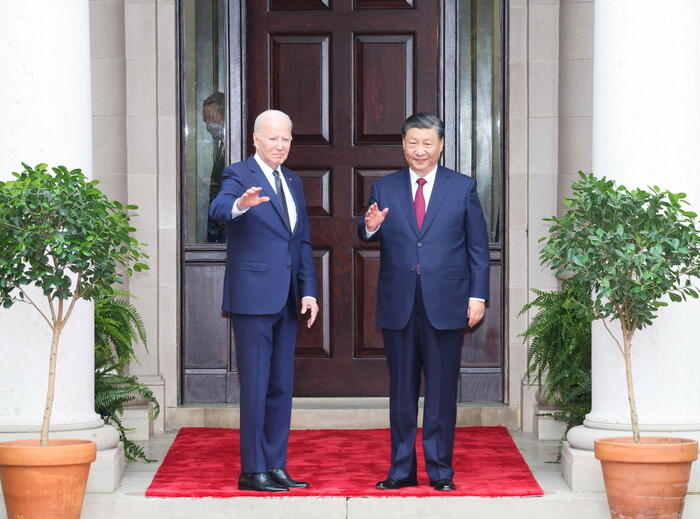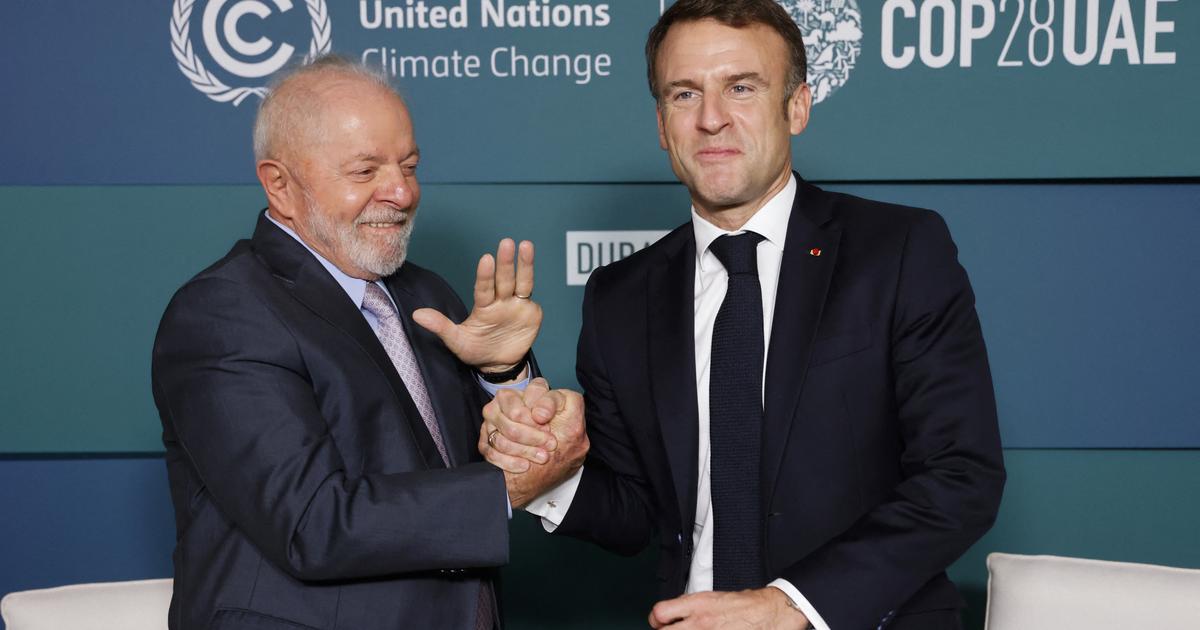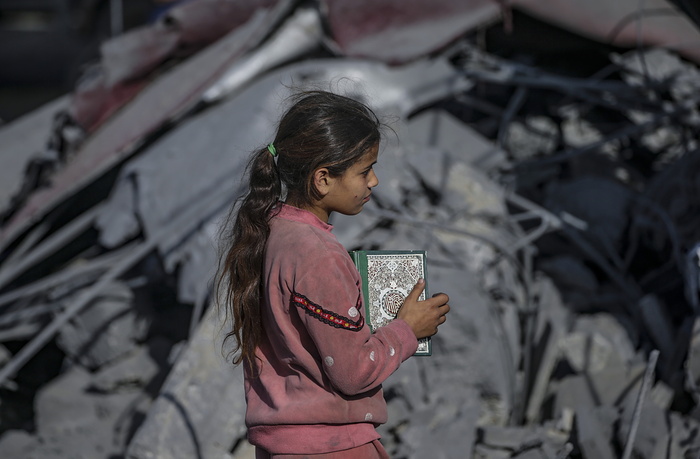John Kerry at a rally with Joe Biden in Delaware on Nov. 24. JOSHUA ROBERTS / Reuters
After four years of absence, the United States, which was a key actor in closing the Paris Agreement in 2015, has once again participated in an international summit against climate change this Monday.
John Kerry, President Joe Biden's new special envoy on climate change, spoke today at the multilateral meeting on adaptation to climate change organized by the Government of the Netherlands.
"We are proud to be back," said Kerry.
"We return, I want you to know them, with humility," added the democrat, who has also lamented the four years of absence from his country.
In addition to being absent from these summits, the Donald Trump Administration removed the United States from the Paris Agreement, a departure that became official on November 4.
It was the second climate scare in the country that has historically contributed the most to climate change, since it never ratified the Kyoto Protocol.
But many aspects of the Paris Agreement were shaped so that the United States could adhere without problems.
Perhaps that is why the message that Kerry is conveying publicly and privately to his international colleagues since last week he was confirmed in office is that of that return "with humility", something that he has promised again this Monday.
"We need the US at the center of action against climate change," Netherlands Prime Minister Mark Rutte later admitted.
Kerry has explained that the entire US Administration and federal agencies will now be committed to fighting climate change.
"We are committed to the world," insisted Biden's special envoy at this meeting, thus reinforcing the commitment to multilateralism.
Now, the United States will have to specify its concrete plans to cut greenhouse gas emissions for this decade.
Among the executive orders that the US president signed on his first day in office last week is the return of the US to the Paris Agreement.
The United States will be officially back in mid-February.
Formally, this country will have been thus barely three months out of the international pact against global warming.
But the truth is that in the four years of Trump's mandate the US Administration has been absent from any international effort to combat climate change.
Biden's team, however, has now placed the climate crisis among the immediate priorities.
And, according to the list released by the White House last Wednesday, the Democratic Administration is committed to taking "swift action to face the climate emergency" and "leading the clean energy revolution."
"They are sending very positive and very serious signals," explains David Howell, an expert in climate negotiations for the SEO / BirdLife organization.
"For example, with the equipment that is being assembled," says Howell.
Among that team stands out, logically, Kerry, who was one of the promoters of the signing of the Paris Agreement during the last term of Barack Obama.
"We are much more optimistic than we were a year ago," Howell says.
And among the reasons for being so is the margin of maneuver that the Kerry and Kamala Harris team will have thanks to the fact that the Democrats will control the two legislative houses.
"They will be able to go beyond what Obama was, who had a limited margin," says Howell.
Thanks to that majority in the House of Representatives and the Senate, Democrats will be able to pass more robust plans to underpin a green transition.
And to reverse the changes undertaken by Trump, who has reversed around a hundred environmental regulations during his tenure that affected, for example, the fuel efficiency of cars, emissions from power plants and methane.
"You can be remembered as the president of the climate," 150 personalities from the world of politics or business, such as the president of IKEA, Jesper Brodin, and several European parliamentarians wrote to Biden this weekend.
"This is the most decisive decade in the history of humanity to face the climate crisis," they pointed out in a letter published in
The New York Times
.
"We intend to make good on our Climate Finance Pledge. There is simply no adapting to a 4 degree warmer world except for the most privileged. We are coming back with humility and will work with multilateral institutions."
- John Kerry @ClimateEnvoy #AdaptationSummit pic.twitter.com/BqT0LDo13H
- CASsummit2021 (@ CASsummit2021) January 25, 2021
Biden's green election program proposed a $ 2 trillion clean investment plan to help the United States achieve net zero emissions by 2050, which means that by then the US economy will only be able to expel the atmosphere into the atmosphere. amount of greenhouse gases that its sinks (mainly forests) are capable of absorbing.
100% emission-free electricity generation was also promised in 2035.
Returning to the Paris Agreement is the easiest of the job ahead of the Biden Administration.
All countries that adhere to the agreement must present plans to cut their greenhouse gas emissions (known as NDCs) for this decade.
"We are all looking out for the commitment that the US is making now," says Howell.
When Obama joined the pact in 2015, his government set a cut target for 2025 of between 26% and 28% compared to 2005 levels. According to the consultancy Rhodium Group, in 2020 US emissions will be They have been 21% below the 2005 levels, but a very large part of that cut is due to the crisis generated by the covid.
The Biden Administration has yet to release its 2030 target, its NDC.
But Kerry has explained that the plan is in the works and will be announced shortly.
Also, national and international climate finance commitments.
Because another of the doubts that the new US Administration will have to clear is its contribution to international climate finance, which should help less developed countries face the consequences of climate change.
The US has been reducing its contributions since 2017 and is now expected to increase the funds allocated to this chapter of international cooperation.
The commitment of all the signatories of the Paris Agreement was that developed countries should mobilize $ 100 billion annually starting in 2020. But the most recent OECD monitoring report points out that climate finance provided and mobilized by developed countries in 2018 - the last year for which data are closed - it stood at $ 78.9 billion.
To find out the most important news on Climate and Environment from EL PAÍS, sign up here for our
weekly
newsletter
.
Follow the Climate and Environment section on
and


/cloudfront-eu-central-1.images.arcpublishing.com/prisa/DOOQ2YEAZJCSNITR6TA2ARDQT4.jpg)
/cloudfront-eu-central-1.images.arcpublishing.com/prisa/FIJVMOBHZRWVDBKS3NAQ2M4JRE.jpg)





